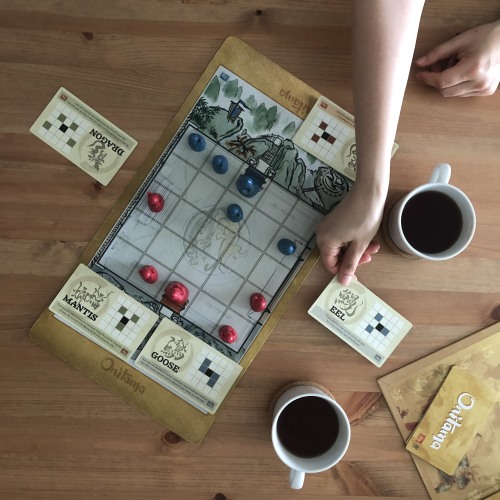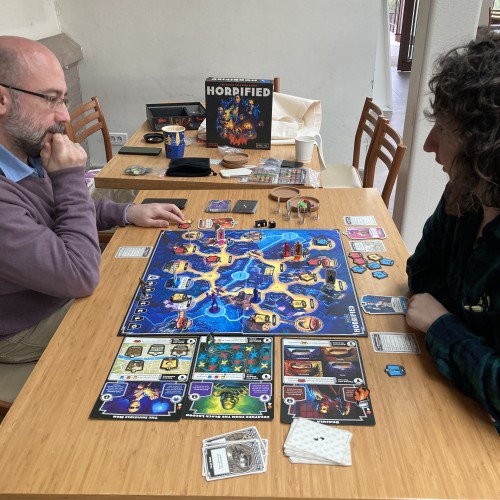
Poor mental health is a serious issue that affects us as graduate students and impedes our academic, intellectual, and social lives in a variety of ways. I have been interested in exploring and understanding the challenges that anxiety, burn out, stress, sleep-deprivation, and academic pressure brings to our daily lives as graduate students and, more importantly, in learning how self-care and well-being activities can help us cope better with mental health issues as they arise.
Over the years, I’ve read books, watched documentaries, and listened to podcasts to learn more about mental health and well-being. Thanks to in-depth peer-support training at the University of Oxford’s Counselling Office, I learned a variety of psychological skillsets for coping with mental health issues and self-care for graduate students. My personal interest in good mental health then encouraged me to become a peer-support for my fellow graduate students at Oxford. This, in turn, led to some fascinating conversations and the opportunity to see some useful psychological tools in action.
Mental health is an important element that shapes students’ longer-term academic careers, since it affects how they “think, feel, act, make choices, and relate” to others.1 The importance of good mental health is reinforced when one is faced with significant problems, such as traumatic events, whether current or triggered from the past. Yet, as the World Health Organization states, “mental health is more than the absence of mental disorders—it is an integral part of health.” 2
Why Don’t You Take a Rest Now?
Last week, a colleague struggling with sleep disorder, tiredness, and anxiety said to me, “İrem, you should take a rest after your PhD. I wish I could.” What I responded to my friend was, “Why don’t you take a rest now?”
In 2021, a research study presented results showing that more than 70% of 3,352 surveyed doctoral students in the United Kingdom were experiencing at least mild depression and anxiety. More than one-fifth reported symptoms of moderatelysevere to severe depression. According to this research, doctoral students agreed that “developing a mental-health problem during your PhD is the norm.”3 What are the potential risk factors that negatively affect the mental well-being among PhD students to such a great extent? According to this report, financial insecurity, lack of funding, and high personal expenses top the list. Another risk factor is having a poor supervisor relationship, and the lack of a supportive, accessible, and engaged relationship actually exacerbates the negative impact of the other risk factors. I also believe that job market pressures further compound the stress of going to school, as PhD students find themselves continuously preparing application materials and getting ready for job interviews in their final years of research just as they are feeling the heat to complete their degree.
Doing a PhD can be an intensely lonely experience. Although one can feel isolated from the outer world while working at the library, this work routine always reminds me to take care of myself. I am well aware that self-care is an important and effective tool for maintaining mental health and well-being, and it helps graduate students to manage stress, lower their risk of illness, and increase their energy.
My Self-Care Tips at ANAMED
During my ANAMED Fellowship, I utilized several simple but effective self-care tools. Enjoying a cup of tea with fellows on the facility’s terrace has done wonders for my state of mind, as has swimming in the Koç University’s West Campus indoor pool, going for a walk at the Atatürk Kent Ormanı next to the Hacıosman metro station and along the Tarabya coastline, visiting exhibitions at SALT, Meşher, Pera Museum, and ARTER, following art events around Istanbul, drawing Zentangle and making water color paintings, visiting antique bookshops around Beyoğlu and Kadıköy, and playing board games.

Morning walk at the Atatürk Kent Ormanı.
Don’t Forget to Play!
Whether you are an introvert or extrovert, playing board games and doing puzzles can help both to improve your cognitive and social skills and to reduce stress and anxiety. Playing board games, for example, always starts with a learning phase when you learn about the game’s rules and how to play it. This might take a bit of time, but then you’re on to the playing phase. This entails thinking, not about your research and writing, but rather about something fun and enjoyable. This playing phase also helps us to develop certain fine motor skills, such as dexterity, eye-hand coordination, and spatial intelligence. For these reasons, playing board games is good for our mental health: it exercises our minds and our bodies! Therapists actually use board games to help patients improve their cognitive and fine motor skills. Board games are also used as treatment tools for cognitive-behavioral functioning disorders, psychological conditions, and life-style diseases (e.g., metabolic syndromes and smoking-related diseases).
I have definitely noticed that playing board games reduced my PhD research-related stress and anxiety. Thinking during game play helps me distract my brain from the PhD work—and makes me feel satisfied if I win too! Most importantly, it allows me to have an entertaining time with my friends that brings joy and laughter.

Onitama (2014), a two-player, chess-like strategy game.
Koç University’s “Lunch Break” Board Game Group
I have been playing board games with various friends for about five years now. During my ANAMED fellowship, I enjoyed playing board games with my friends at Koç University’s “Lunch Break” Board Game Group, founded by Emrah Göker almost five years ago. Based on my own experience, I am convinced that playing can nourish our productivity, teamwork, and social interactions. My friend Emrah has been a professional board game enthusiast for several decades; he first learns the game, plays it alone to explore it, and then teaches anybody at the main campus who wants to learn. Thanks to Emrah, I discovered how playing board games reduces my stressand increases my well-being while meeting new people and making new friends. Playing, thus, really does offer a moment of self-care and mind-refreshment.

Playing Horrified (2019) at Kış Bahçesi, Koç University Main Campus.
Board Games and Medical History
A medical history initiative at the University of Oxford’s Faculty of Oriental Studies has been working to design a medical-themed board game. Daniel Burt, a software developer and game designer at the Khalili Research Center, focused the game on Medieval Islamic Science and Medicine. In addition to designing the game, Burt also looks at how board games can be used as public engagement tools for researchers and historians. He has given several talks about board games and medieval medicine and was involved with the Mind-Boggling Medical Histories game, which aims to foster understanding of the history of nursing. As a historian and board game enthusiast, I found this project fascinating in terms of my own doctoral research that explores the history of medicine and disability in the late Ottoman Empire. I am excited to see how this gaming project develops, because I firmly believe that games can be used as teaching and learning resources, as well as self-care and well-being tools. In a world that has already embraced the digital turn, I still want to sit down together with people and play a game around a table; this, in my mind, is a precious, relaxing, and joyful gift to our mental health and well-being. Don’t forget to play!
————————————————————————————————————————————————–
Works Cited:
1National Institute of Mental Health (NIMH). “Caring for Your Mental Health.” Accessed June 1, 2022. https://www.nimh.nih.gov/health/topics/caring-for-your-mental-health.
2World Health Organization. “Mental Health: Strengthening Our Response.” Accessed June 1, 2022. https://www.who.int/news-room/fact-sheets/detail/mental-health-strengthening-our-response.
3Woolston, Chris. “Depression and Anxiety ‘The Norm’ for UK PhD Students.” Nature, December 14, 2021. https://www.nature.com/articles/d41586-021-03761-3.

